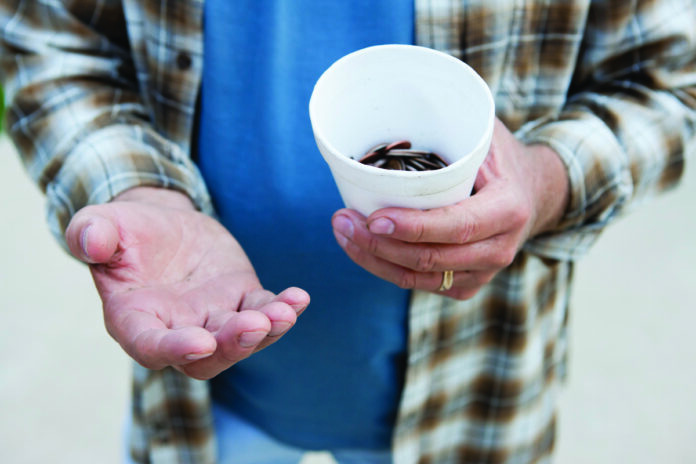The San Diego Homeless-Experienced Advocacy and Leadership network, which originally launched in April 2019 and trained participants in North and Central San Diego county to advocate for public policy, is now building out a new group in East county with plans for another to follow in South Bay.
At its core, the program is designed so homeless or formerly homeless residents bring their insight to policy leaders who, ideally, make use of the feedback to develop wiser programming that could lead to better outcomes.
San Diego Housing Federation Resident and Community Organizer Mehrsa Imani, who oversees the program said a historic approach to homeless outreach has typically included policy experts but “we need to live up the voices of those with lived experiences” to truly make an impact on homelessness.
“HEAL takes the approach of trying to understand the agencies and people making decisions related to homelessness. When the program was established, we and participants asked where the conversations were happening and questioned how people with lived experiences could have a voice. One way to break down barriers is to work on some of the gaps, the issues, the loops where people get caught in the system. We’re working with people to change and improve policies so the pathways out of homelessness become more clear,” Imani said.
Each cohort goes through a five-week training program during which participants address how priorities related to homelessness can be tied into conversations with elected officials and their specific platforms.
“One strategy has been to meet with elected officials who have been more aligned with our views and expand over time. However, we also ask how we can talk to other elected officials, even if housing and homelessness is not their top priority. At the end of April, we had a legislative forum inviting elected officials from cities and the county. HEAL created a presentation in which speakers went over their own experiences, talked about some myths to debunk and shared solutions,” Imani said.
She also said it is important to note HEAL members repeatedly say they “want to be part of recommending solutions which are proposed and then implemented” rather than just giving feedback on existing plans, essentially helping to craft policy.
In East county, HEAL has partnered with Community Action Service Advocacy for training. CASA Executive Director Dana Stevens said CASA Associate Director Bonnie Baranoff will be coordinating the first East County cohort alongside Imani and “hopefully help people build confidence to find their voice and share their journey” to change perception and ultimately reduce homelessness.
“I think the HEAL network is going to bring the voices to our housed residents, business leaders, anyone with a stake in this game—which is everybody— and help folks who haven’t been through this experience understand how every person’s situation is unique,” Baranoff said.
Regardless of how someone came to be homeless or “whether they need permanent supportive housing because of an illness or something more temporary” the end solution is the same for everyone, Baranoff said: everybody needs a roof over their head to get out of homelessness.
Often, Stevens said, elected officials want to hear from constituents yet they appear to craft homeless outreach policy without making an effort to hear formative ideas or feedback from residents who have been there.
“I think by helping to empower people with lived experiences, they can build the confidence to tell their own story. We need to go gently with people, but hearing real stories can correct misperceptions and inaccuracies we hear from elected officials and people in the community who have never known a person who has found themself without shelter enough to understand it can be a series of events gone wrong— a simple thing like losing your vehicle, or losing your job that snowballs into a bigger problem, or a health situation that contributes toward losing your home. We can bridge the gap by getting those stories out,” Stevens said and those stories can help inform policy.
A video Imani uses in outreach and training includes one HEAL member identified only as Dennis, who ran an addiction treatment center in Orange County before he unexpectedly found himself homeless. He “thought he understood why people end up homeless” until he lived through the experience and realized his assumptions were wrong. It is stories like his, Imani said, that can drive better policy as politicians might also have misinformation or a lack of understanding that can only come from living through homelessness.
In addition, she said, some participants have told her the training experience, learning how to advocate for others is therapeutic.
“When you fall into homelessness, nobody is handing you a manual on how to be homeless. It does help people become advocates, to figure out once you’re not homeless, what’s next?” Imani said.

